Russia and Ecology (part 2): What does the public think?
In part 1 we've covered the state position to economy. What is the stand of the public?
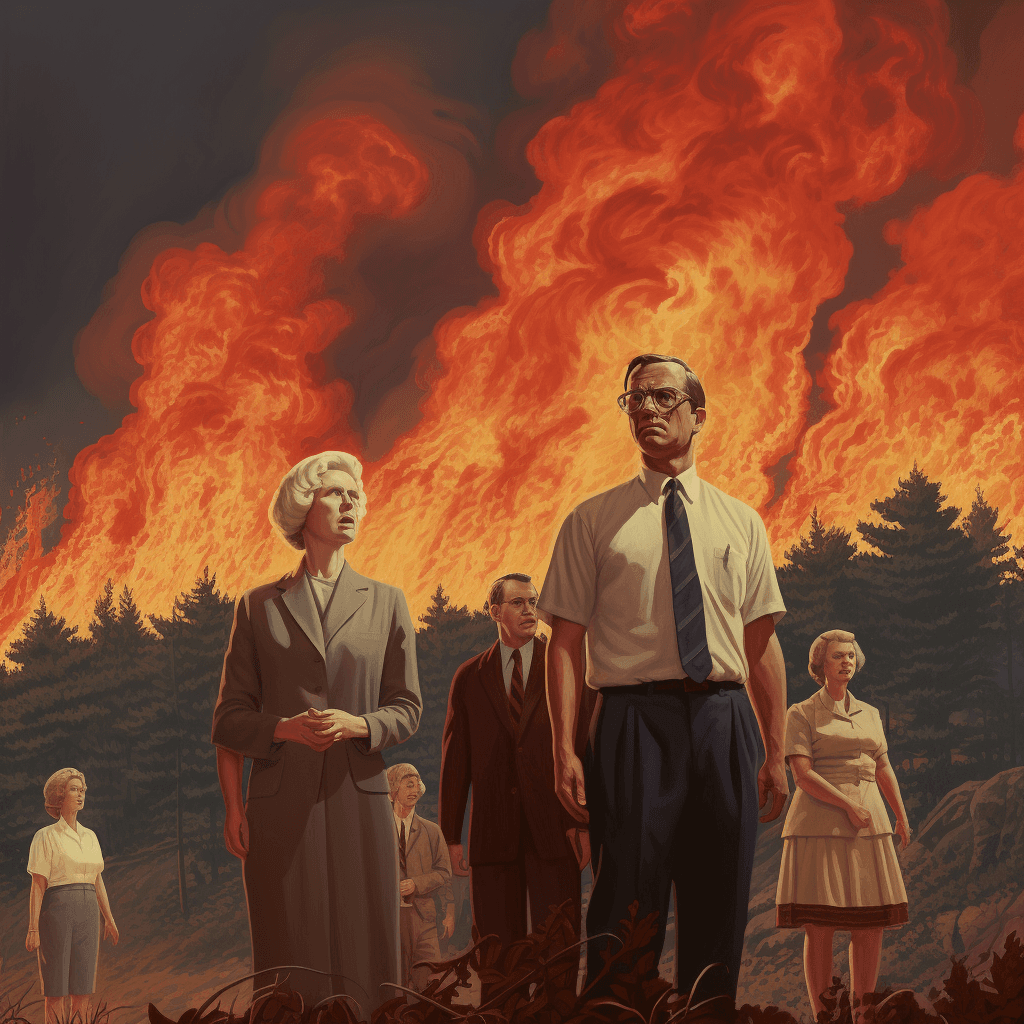
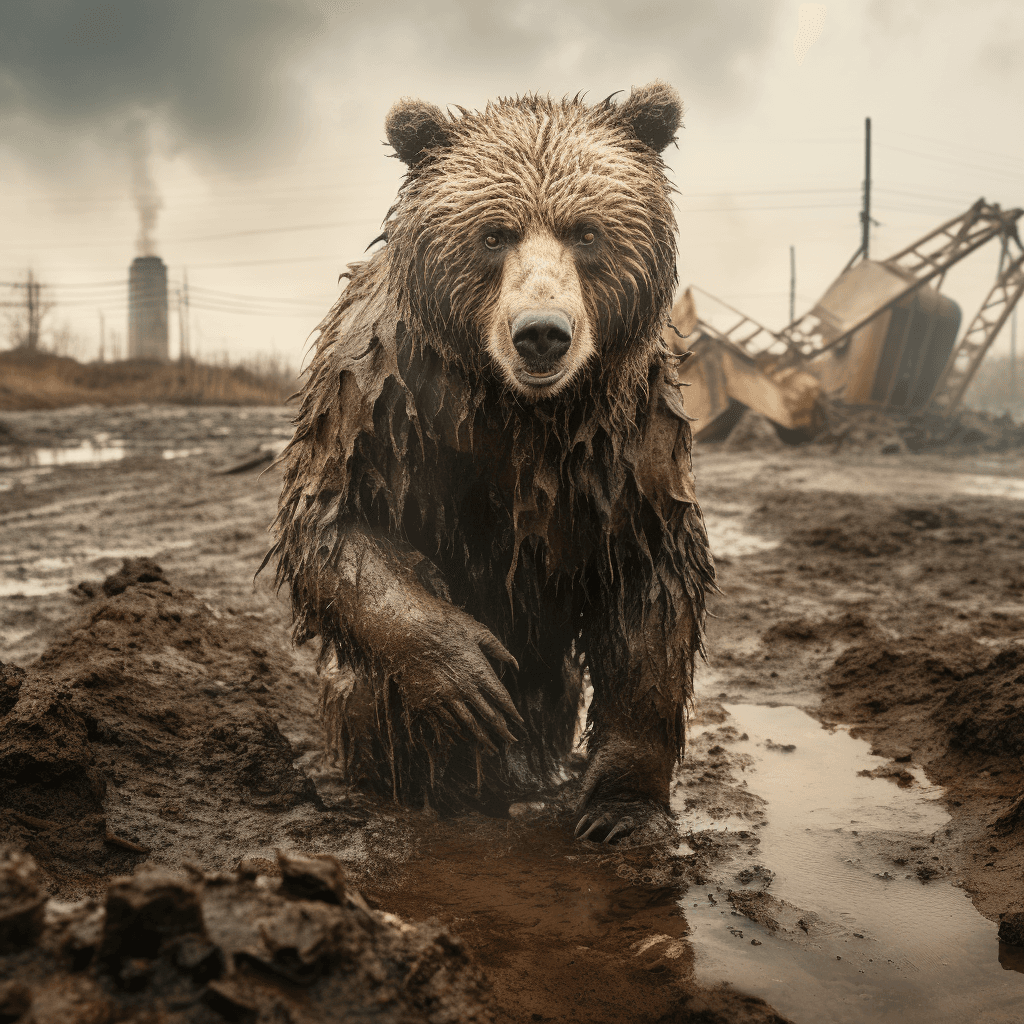

While Russia's military capabilities have long been a matter of international concern, the country's climate policy, or lack thereof, should be understood as an issue of equal significance. Russia's climate policy has the potential to inflict even more devastating consequences on the world than its military threat. The vast expanse of Russia's territory, combined with its poor climate policy decisions, creates an enormous global impact that is hard to ignore.
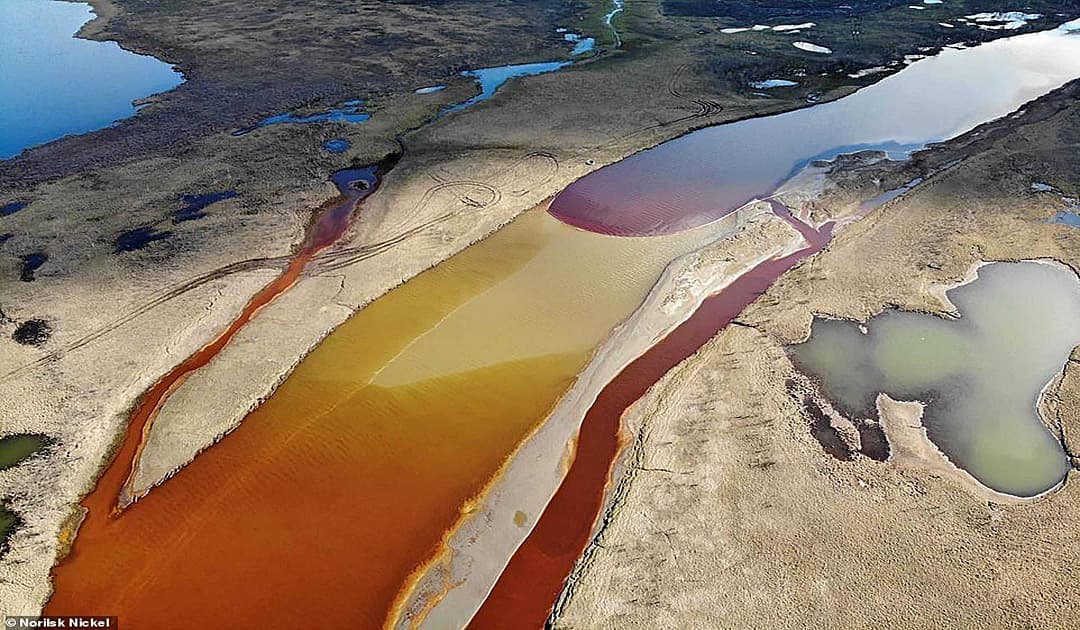
Severly polluted river Ambarnaja near city or Norilsk, photo by Norilsk Nickel
As a petrostate with a substantial influence on global environmental policies, Russia holds the power to significantly shape the course of climate action worldwide. Moreover, Russia's stance on climate change can directly impede the green transition in Europe and hinder global efforts to combat climate change.
Therefore, understanding and engaging with Russia's climate policy is essential for anyone concerned about the planet's environmental future and the pursuit of a sustainable, resilient world.
Russia is among the 20 countries with the largest developed oil and gas reserves. It is also among the nine countries responsible for 90% of global coal production. Furthermore, Russia plans to increase its gas and oil production by above 5% by 2030. The country is currently the fourth largest greenhouse gas emitter behind China, the US, and India. In addition, it is the world’s third-highest carbon emitter in history, responsible for some 7% of global cumulative CO2.
Climate change is undeniably a global issue, transcending national boundaries and affecting every corner of the Earth. However, the Russian government views climate change not as a universal challenge, but rather as individual issues that each nation should address independently. Moscow prioritises the preservation of its national sovereignty over concerns like deforestation in the Amazon or the rising sea levels affecting Pacific island nations.
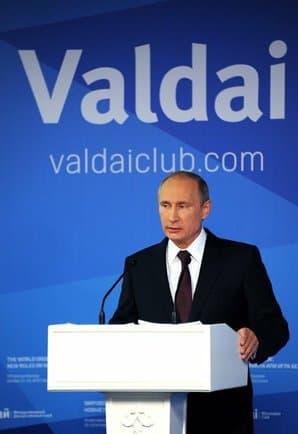
Vladimir Putin giving a speech at the Valdai Club gallery in October 2014
2020 report emphasises two aspects of sovereignty to climate policy:
Consequently, during international climate negotiations, Russia strongly opposes efforts to establish compulsory targets and instead adopts a minimalist stance by limiting its area of responsibility to adhering to its contractual obligations.
Throughout three decades, Russia's climate policy has been pragmatic in nature, neglecting international climate agreements to serve “higher priority” goals. These include:
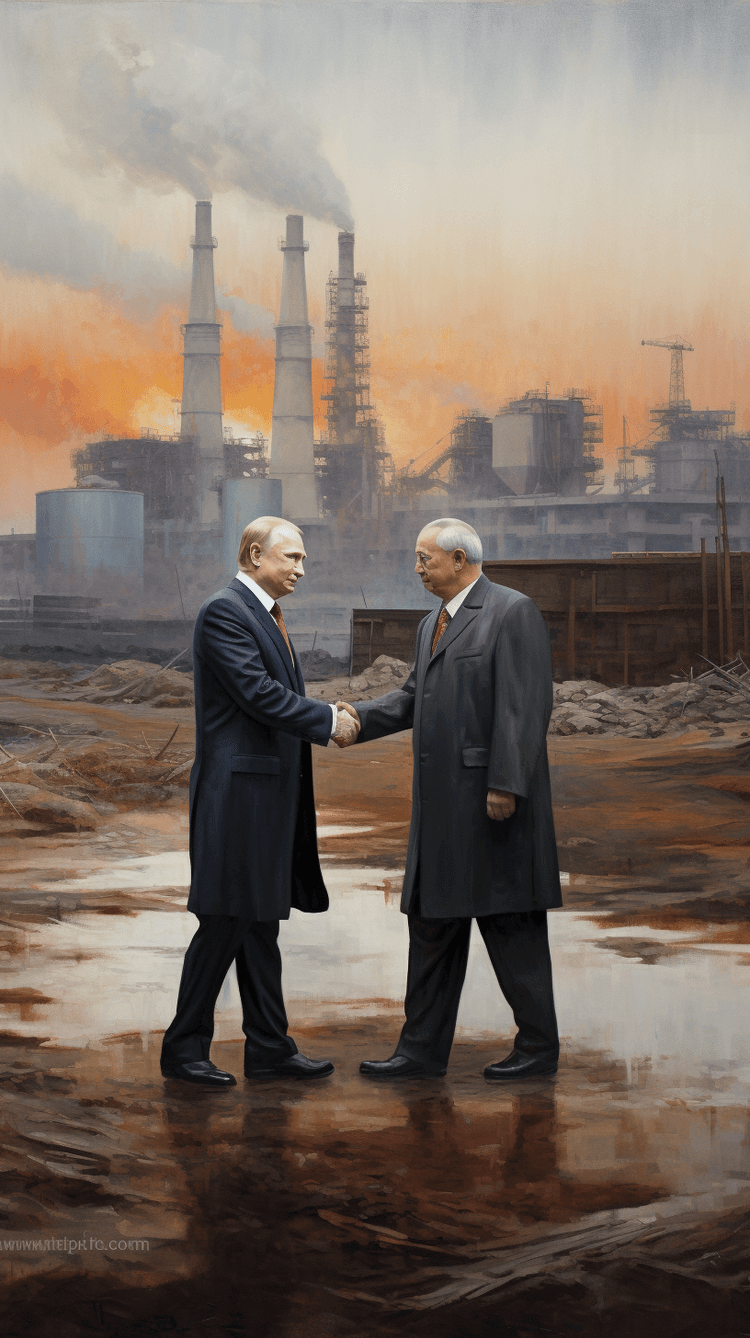
This image was generated by AI
Moscow's stance has remained nearly unaltered, extending from the 1992 Rio Climate Conference when the United Nations Framework Convention on Climate Change (UNFCCC) was established, through the 1997 Kyoto Protocol, to the 2015 Paris Agreement.
The process of ratifying these agreements reflects Moscow's minimal commitment. Russia took two years to ratify the UNFCCC, seven years for the Kyoto Protocol, and four years for the Paris Agreement. Delays, at least in some cases, were not primarily due to substantive issues but rather stemmed from the Kremlin's attempt to leverage ratification for other strategic objectives.
The approach towards the Kyoto Protocol exemplifies a distinctly pragmatic mindset. Initially, while the United States was a signatory to the Protocol, Russia aimed to profit by selling surplus emissions allowances to the world's largest and most industrialised economy. Following the U.S. withdrawal from the Kyoto Protocol in 2001, Russia's interests shifted from purely financial to geo-economic. Recognising that the Kyoto Protocol could only enter into force upon Russian ratification, Moscow effectively turned this ratification into a condition for its entry into the World Trade Organization (WTO).
Moscow's pragmatic approach was less conspicuous in its response to the Paris Agreement, which lacked financial or geo-economic incentives that could facilitate Russia's ratification. Nevertheless, as in the past, Russia's policy was influenced more by a calculated assessment of short-term costs and benefits than by concerns about global warming. At a time when the United States' moral and political standing was historically low, arguments in favour of Russia's alignment with the international consensus grew more compelling. Ratification bolstered Russia's reputation as a responsible member of the global community without imposing significant obligations. From Moscow's perspective, it appeared to be a situation with mutually beneficial outcomes.
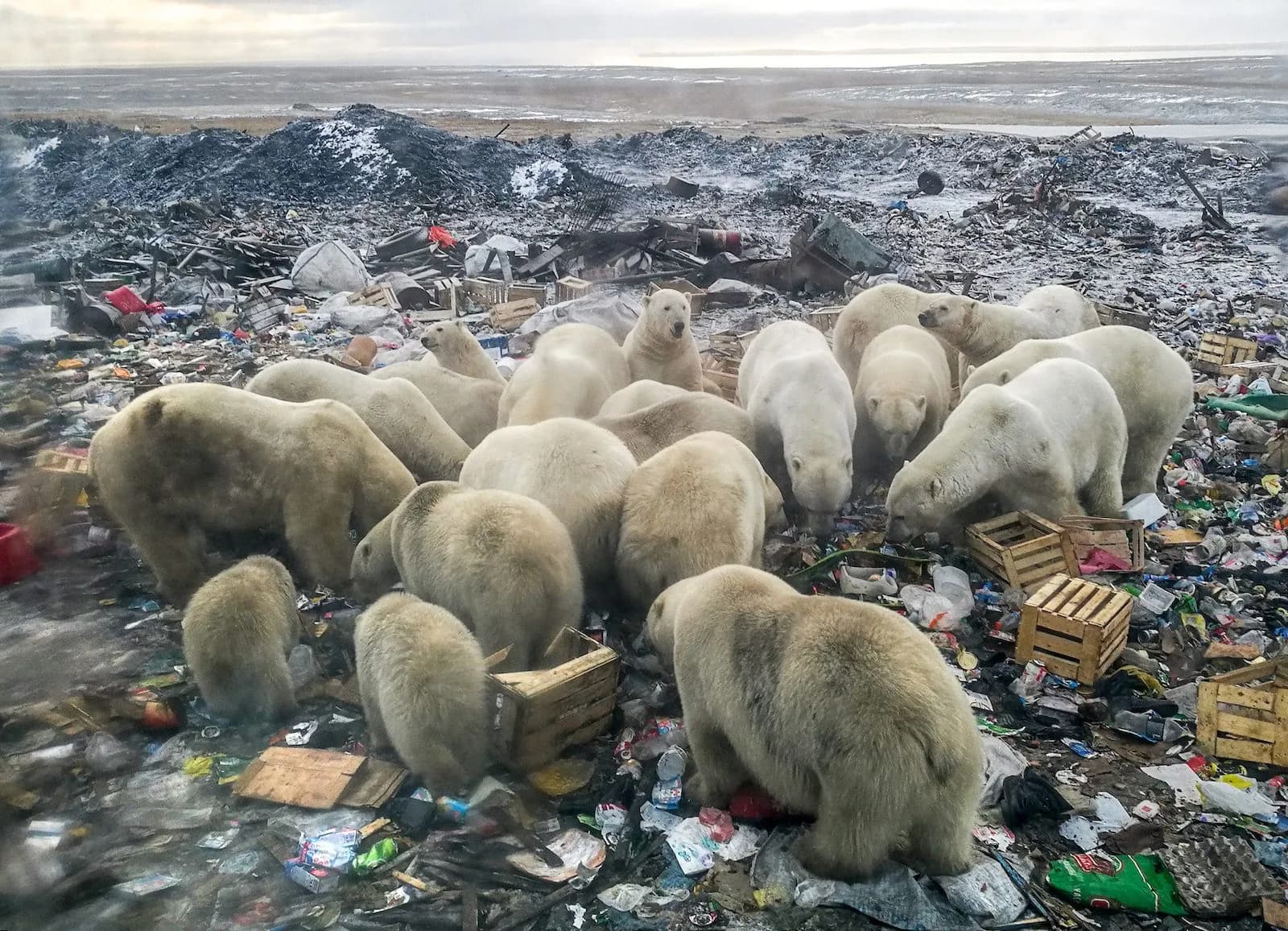
Polar bears feed at a garbage dump near the village of Belushya Guba, on the remote Novaya Zemlya islands in northern Russia in October 2018. This is a military area where bears have began to enter in search of food due to Arctic ice melting. Photo: Alexander Grir / AFP
Moscow's continuing insistence on maintaining the Kyoto Protocol 1990 benchmark as the yardstick for future reductions in Russian emissions renders it challenging to commit to achieving a 25-30 percent reduction by 2030. Currently, Russia's carbon dioxide emissions are notably lower than during the Soviet period (in 2017, they were 32% lower than in 1990). This enables the Russian government to pursue ambitious plans for expanding fossil fuel production while still meeting its contractual obligations.
Similar to its approach with the Kyoto Protocol, Moscow's agenda concerning the Paris Agreement is not primarily oriented towards environmental objectives, such as mitigating global warming, improving air quality, or preserving permafrost. Their paramount concern is to ensure that the pursuit of global climate goals does not impede Russian national interests as defined by the ruling elite.
As Deputy Minister of Energy Anastasia Bondarenko explicitly stated:
The implementation of international climate policy should not encroach on the interests of energy-producing countries
Anastasia Bondarenko, Deputy Minister of Energy
Therefore, it is unsurprising that the result of this perspective is not a proactive climate policy but rather a reactive, opportunistic, and self-centred approach.
National Climate Policy formation is significantly influenced by specific political figures, most notably, President Vladimir Putin. This does not imply that he possesses absolute authority or is directly involved in every phase of decision-making. Nevertheless, his sceptical stance regarding the anthropogenic aspect of climate change has played a pivotal role in shaping Russia's policies over the past two decades. Additionally, Putin represents an elite segment that tends to regard the climate emergency as a mere “liberal whim”, perceiving it as a far lesser threat than, for instance, economic recession, American “hegemony”, or liberal values. However, a change of rhetoric was noticed in 2022 when Putin already named climate change as the greatest challenges facing humanity.
At a press conference in 2019, Putin claimed that “no one knows the true cause of climate change”, adding that calculating how humanity affects global climate change “is very difficult, if not impossible”. However, as early as 2013, the United Nations' Intergovernmental Panel on Climate Change (IPCC) conveyed in its fifth assessment report that it was "extremely likely" that over half of the observed increase in global average surface temperature from 1951 to 2010 resulted from human activities, indicating a 95% to 100% probability. In its 2021 report, the IPCC featured a dedicated chapter addressing human influence on the climate system, unequivocally stating that human activity has indisputably warmed the global climate system since pre-industrial times. Professor Ed Hawkins, an IPCC author, emphasised during a press briefing:
…It is unequivocal and indisputable that humans are warming the planet… And every government agreed to that.
Professor Ed Hawkins, IPCC author
Today, the origins of the current climate change are not under dispute anymore; the scientific consensus is that humans are responsible for 100% of current warming.
Moreover, Russian climate policy is shaped by the influence of powerful private interests, with the most significant among them being the energy sector, which serves as the cornerstone of the national economy. In 2018, hydrocarbons contributed to 46% of national budget revenues, 65% of total export earnings, and 25% of Russia's gross domestic product (GDP). These figures, which are impressive in their own right, translate into substantial political clout for leading energy corporations. Their sway extends across various areas of governmental control, particularly in hindering any progress toward a post-industrial and post-carbon economy. The energy companies' agenda closely aligns with the broader strategic aspirations of Putin's regime.
Among the influential groups are the Russian Union of Industrialists and Entrepreneurs (RSPP) and the agricultural sector. RSPP's influence became apparent during the formulation of the Russian government's plan for adapting to climate change in late 2019. Earlier versions of the plan proposed the introduction of a carbon tax and penalties for companies exceeding emission limits. However, even these relatively modest measures were subsequently scrapped in favour of a toothless five-year "climate audit." The Russian Union of Industrialists and Entrepreneurs justified their position by stating:
We must maximise and continually increase sales of gas, oil, and coal while there is still a buyer.
Russian Union of Industrialists and Entrepreneurs
A similar disposition is observed in the agricultural sector, which is not inclined to modify intensive farming methods to reduce greenhouse gas emissions. Instead, their primary focus is on maximising production and exports.
Moscow prioritises the production of fossil fuels due to its belief in this industry's strength. It lacks the will to develop a post-industrial, high-tech, and low-carbon economy capable of replacing the current carbon-intensive industrial model.
Dieser Artikel wurde noch nicht ins Deutsche übersetzt. Wir suchen nach Freiwilligen, die uns dabei helfen können.
In part 1 we've covered the state position to economy. What is the stand of the public?

Short biography of the freedom that never happened.

In Russia, stark regional disparities exist, shaped by history, geography, and economics. From thriving urban centres to struggling rural regions, these inequalities demand a comprehensive approach. How did you imagine Russia?
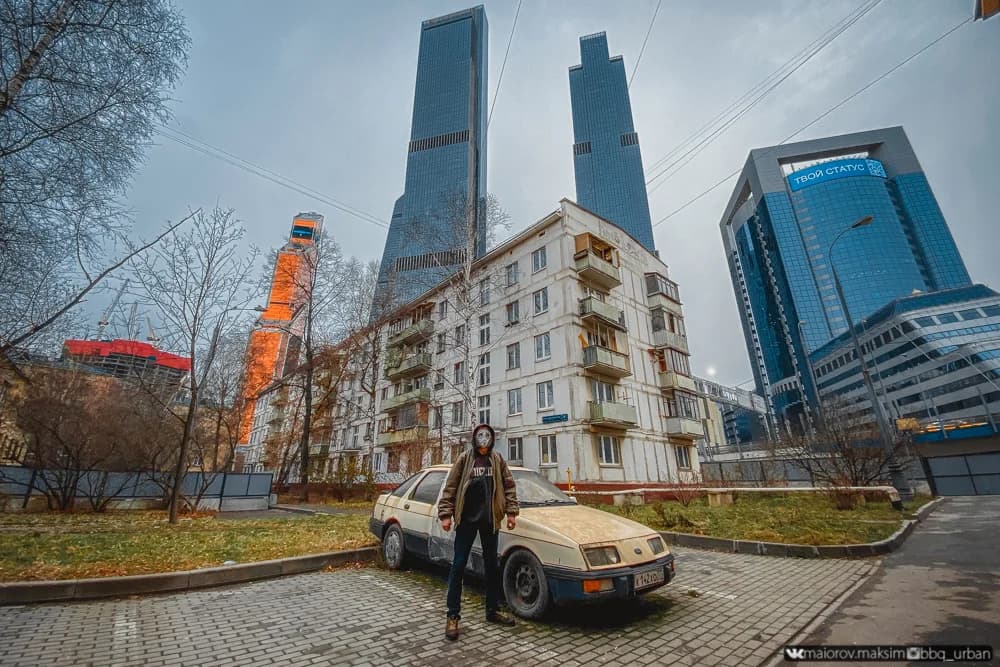
Unsere Medienplattform würde ohne unser internationales Freiwilligenteam nicht existieren. Möchten Sie eine_r davon werden? Hier ist die Liste der derzeit offenen Stellen:
Gibt es eine andere Art wie Sie uns unterstützen möchten? Lassen Sie es uns wissen:
Wir berichten über die aktuellen Probleme Russlands und seiner Menschen, die sich gegen den Krieg und für die Demokratie einsetzen. Wir bemühen uns, unsere Inhalte für das europäische Publikum so zugänglich wie möglich zu machen.
Möchten Sie an den Inhalten von Russen gegen den Krieg mitwirken?
Wir wollen die Menschen aus Russland, die für Frieden und Demokratie stehen, gehört werden lassen. Wir veröffentlichen ihre Geschichten und interviewen sie im Projekt Fragen Sie einen Russen.
Sind Sie eine Person aus Russland oder kennen Sie jemanden, der seine Geschichte erzählen möchte? Bitte kontaktieren Sie uns. Ihre Erfahrungen werden den Menschen helfen zu verstehen, wie Russland funktioniert.
Wir können Ihre Erfahrungen anonym veröffentlichen.
Unser Projekt wird von internationalen Freiwilligen betrieben - kein einziges Mitglied des Teams wird in jeglicher Weise bezahlt. Das Projekt hat jedoch laufende Kosten: Hosting, Domains, Abonnements für kostenpflichtige Online-Dienste (wie Midjourney oder Fillout.com) und Werbung.




Russland hat den Krieg gegen die Ukraine angefangen. Dieser Krieg dauert schon seit 2014 an. Er hat sich seit 24. Februar 2022 nur noch verschärft. Millionen von Ukrainern leiden. Die Schuldigen müssen für ihre Verbrechen zur Rechenschaft gezogen werden.
Das russische Regime versucht, die liberalen Stimmen zum Schweigen zu bringen. Es gibt russische Menschen, die gegen den Krieg sind - und das russische Regime versucht alles, um sie zum Schweigen zu bringen. Wir wollen das verhindern und ihren Stimmen Gehör verschaffen.
**Die russischen liberalen Initiativen sind für die europäische Öffentlichkeit bisweilen schwer zu verstehen. Der rechtliche, soziale und historische Kontext in Russland ist nicht immer klar. Wir wollen Informationen austauschen, Brücken bauen und das liberale Russland mit dem Westen verbinden.
Wir glauben an den Dialog, nicht an die Isolation. Die oppositionellen Kräfte in Russland werden ohne die Unterstützung der demokratischen Welt nichts verändern können. Wir glauben auch, dass der Dialog in beide Richtungen gehen sollte.
Die Wahl liegt bei Ihnen. Wir verstehen die Wut über die Verbrechen Russlands. Es liegt an Ihnen, ob Sie auf das russische Volk hören wollen, das sich dagegen wehrt.